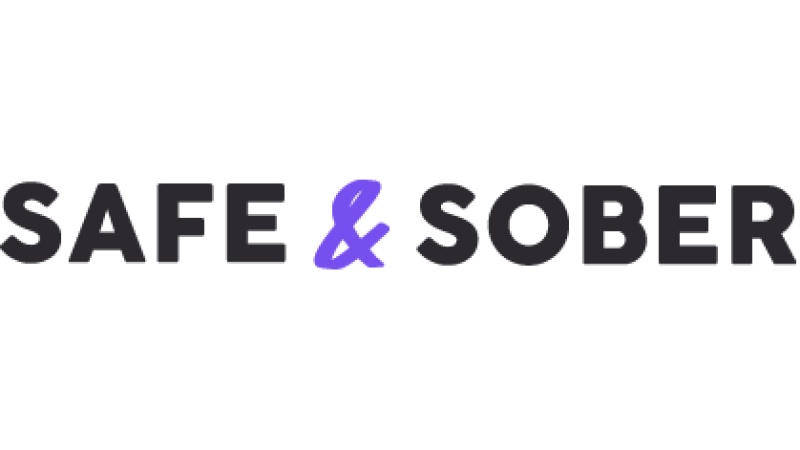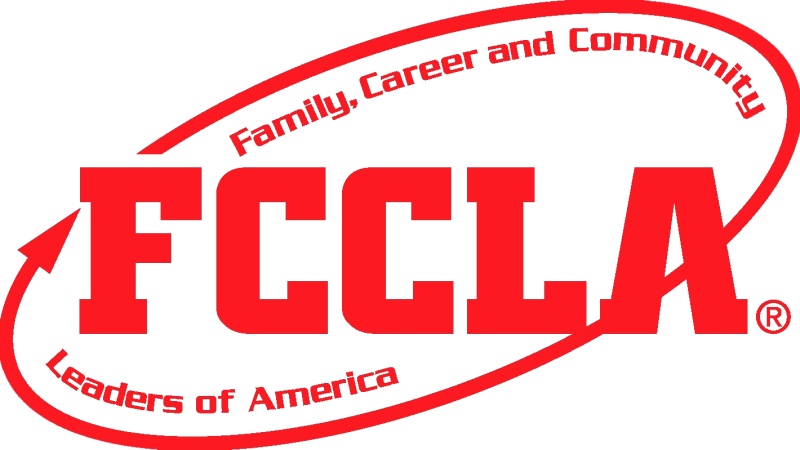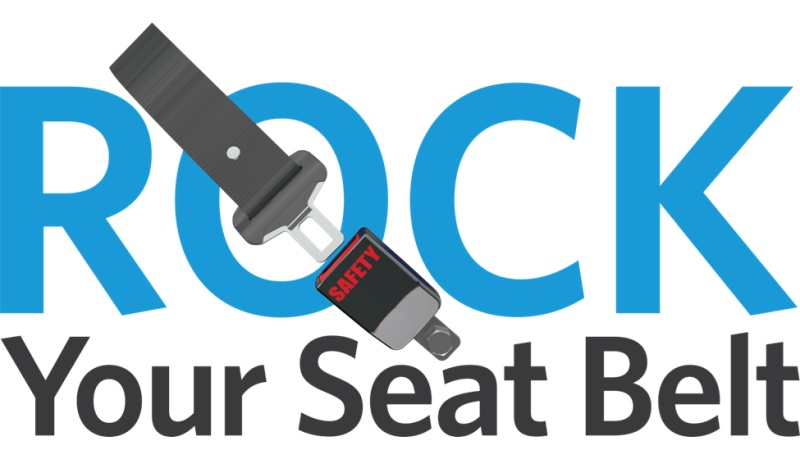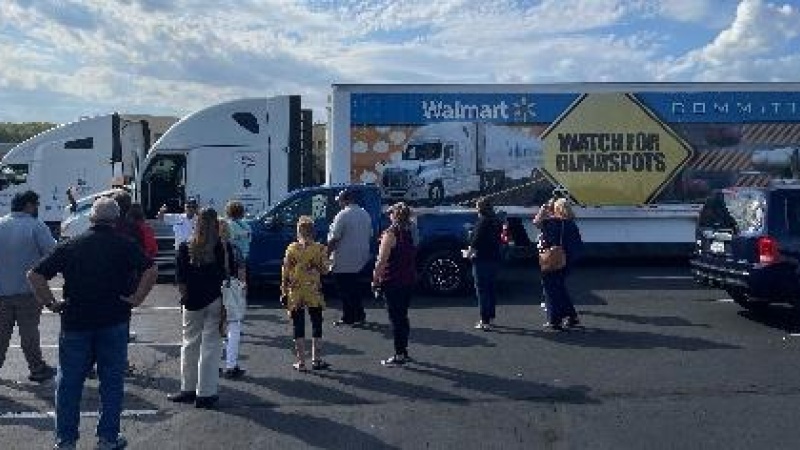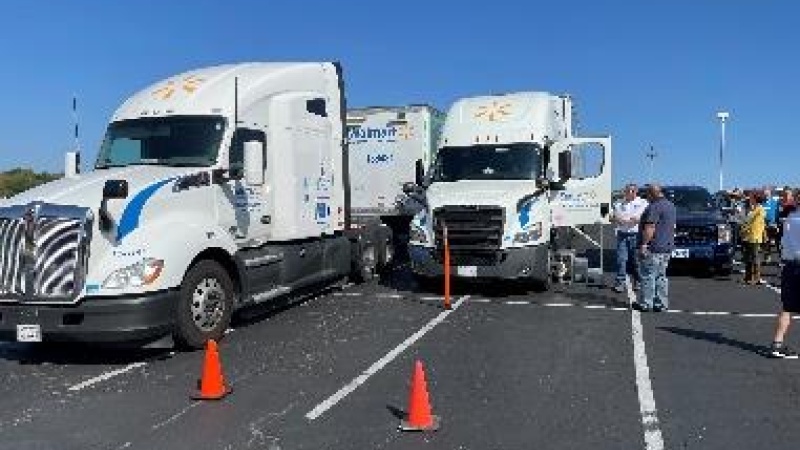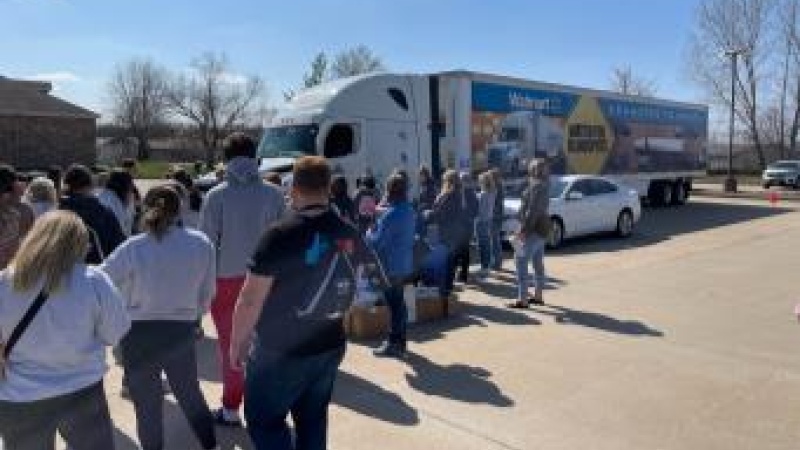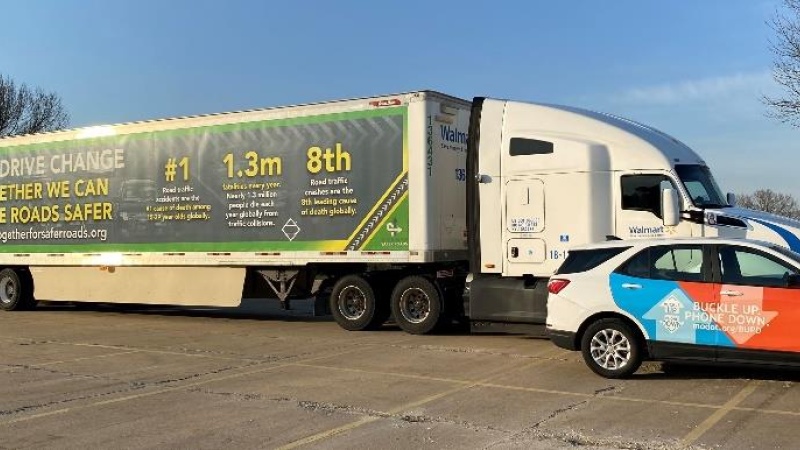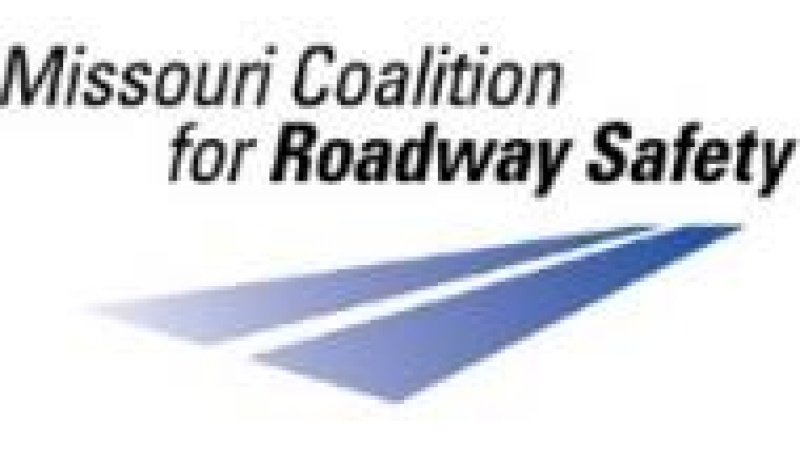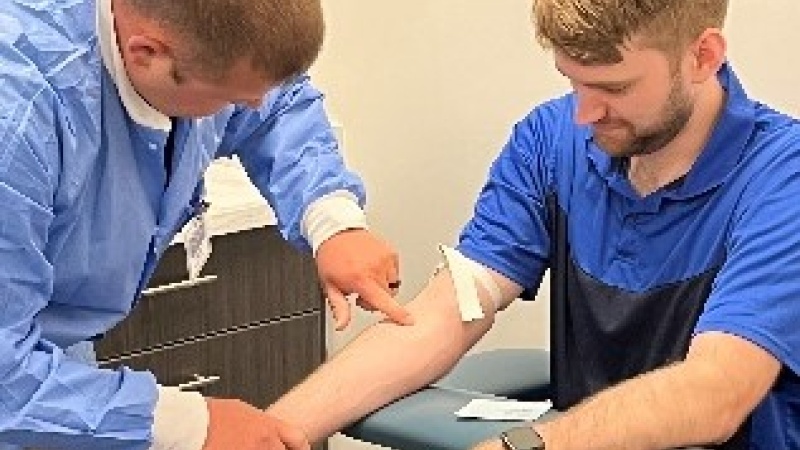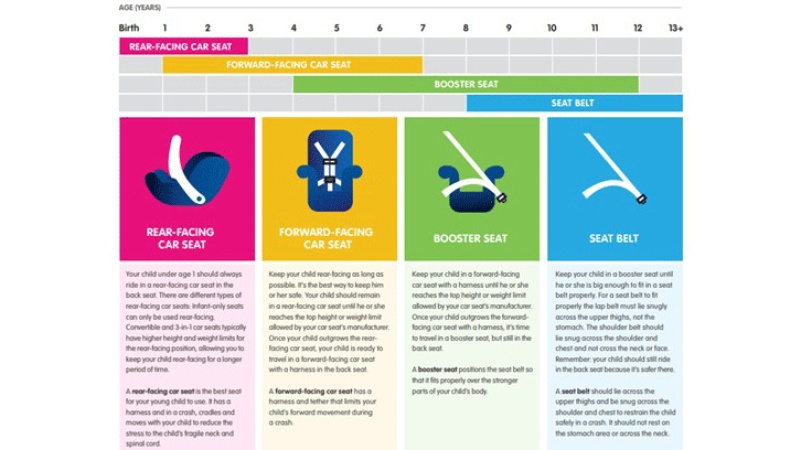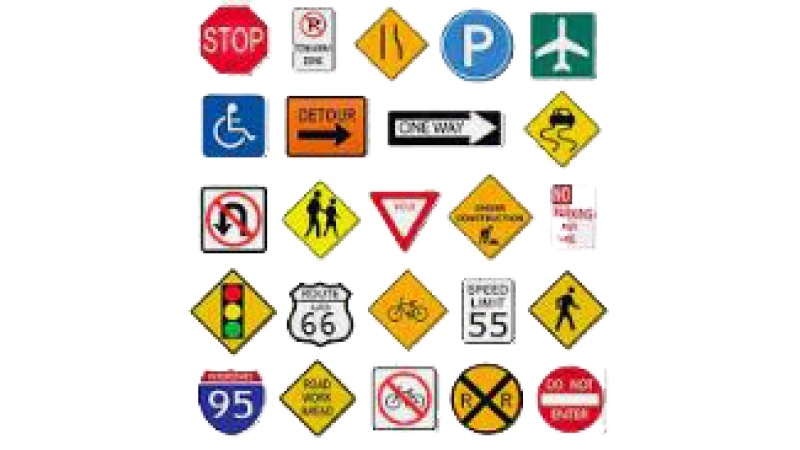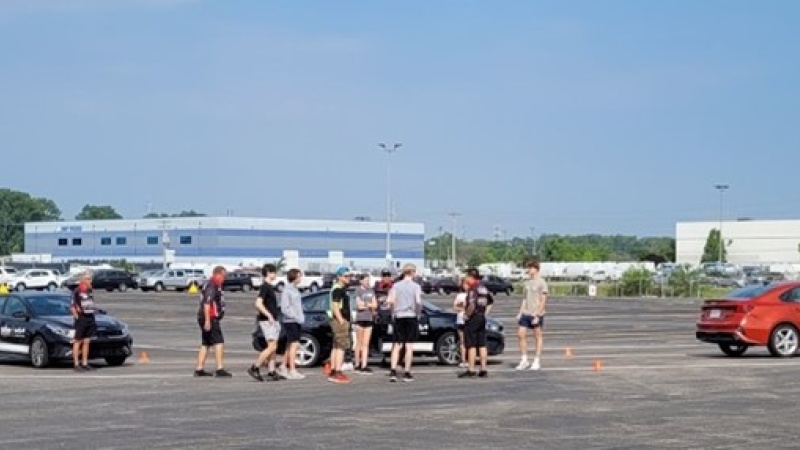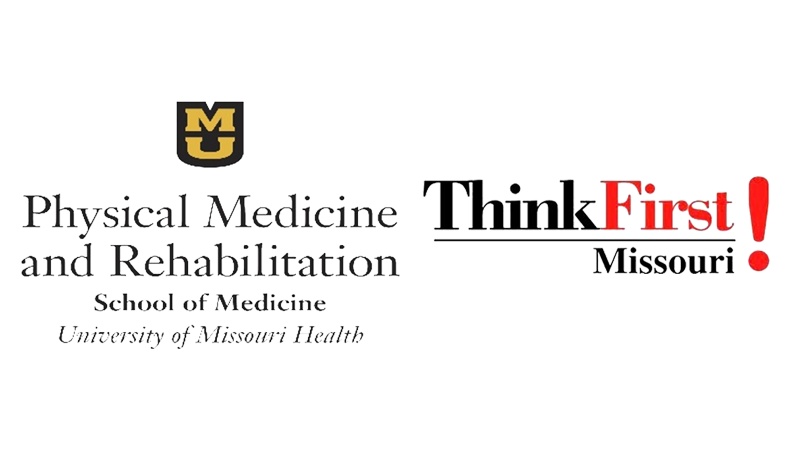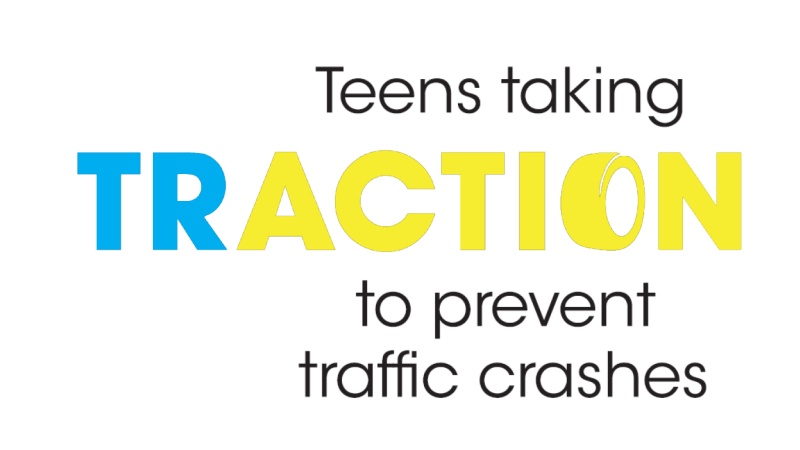A place to find past Coalition spotlighted programs.
April Spotlight: Safe and Sober Impaired Driving Education
Safe and Sober, established in 2004, annually provides no cost prevention materials to schools and organizations across Missouri to educate youth and parents on the facts and consequences of impaired driving and strategies to avoid this preventable tragedy.
Safe and Sober materials include videos, activities, and lesson plans that are updated yearly to stay relevant for today’s youth and provide current prevention resources. Materials can be viewed online, downloaded, or mailed.
As we enter graduation and prom season - and the 100 most dangerous days for teen drivers - we encourage all schools and organizations to visit the website below and register to have full access to all current materials.
One segment might speak to one student and save a life.
https://www.safeandsober.org/


March Spotlight: Family, Career and Community Leaders of America
Department of Transportation partnered to increase participation of Missouri youth in peer to peer traffic education through the FCCLA Families Acting for Community Traffic Safety (FACTS) initiative. This groundbreaking effort aims to educate and engage students in promoting traffic safety within their communities, leveraging the enthusiasm and commitment of over 300 Missouri FCCLA Chapters.
Empowering Students Through Education and Action
The FCCLA FACTS program empowers students to:
- Educate on safe driving practices, targeting both peers and adults.
- Advocate for adherence to local traffic laws and regulations.
- Inspire lifelong traffic safety attitudes through creative, community-focused projects.
Key Areas of Focus:
- People: Emphasizing the responsibility of individuals as drivers and passengers.
- Vehicles: Understanding the critical role of vehicle safety.
- Roads: Promoting awareness and safety on the road, including hazard recognition and response.
Engaging Communities, Shaping Futures
Missouri FCCLA Chapters were encouraged to identify and implement traffic safety projects that resonate with their local communities' needs, ranging from combating impaired driving to promoting seat belt usage. These projects not only allow chapters to contribute significantly to their communities but also offer them a platform to showcase their achievements at the national level Two examples are noted below:
Northeast Vernon County (NEVC) FCCLA -
“Look Every Way Every Day”
NEVC FCCLA Members took action to enhance student safety by painting a sidewalk, designating a loading zone at the high school, and installing signs to alert drivers to the school zone. They also produced a safety video instructing students on how to navigate the crosswalk properly.
King City FCCLA - "Mind on the Drive"
The King City FCCLA Members, with support from the Student Council and FACTS Committee, the Buckle Up, Phone Down Campaign achieved a remarkable 469.5%above their pledge rate goal for safe driving among high school students. Their success came from educational activities, social media engagement, and a focused assembly promoting attentive driving and seatbelt use.
Recognition and Rewards: The most impactful project receives special recognition, including an opportunity to present at the Governors Highway Safety Association Annual Meeting and attend the FCCLA National Leadership Conference in Seattle, WA, to share about their project and its impact on their community.
Get Involved: Missouri FCCLA is driving change and fostering safer communities through the power of student leadership and initiative! For more information or to engage with your local FCCLA Chapter, contact Blake Reed at (816) 489-7500 or breed@bsd124.org.
February Spotlight: Keys to Independence Missouri
Keys to Independence (K2I) is a unique program committed to helping Florida youth experiencing foster care and/or homelessness obtain their driver’s permit and license. Since 2014, K2I, has been managed statewide by Embrace Families, a non-profit agency based in Central Florida, who prioritizes independent living initiatives that promote normalcy and lead to successful transitions to adulthood for the young people they serve.
Now, Keys to Independence has expanded its reach to Missouri to establish a similar program. The State of Missouri recognizes that a young adult cannot be fully independent without a driver’s license. Having a license is particularly important for youth without a traditional family support network as it enables him or her to have a job, go to school, engage socially, and contribute to their community.
Keys to Independence MO creates opportunities and removes barriers to driving by financially supporting the cost of driving lessons for youth in out-of-home care.
Our team will coordinate with enrolled youth, case managers, caregivers, and any other youth supports, to identify driving school options in their local area so they can receive behind the wheel education to be safe, confident drivers.
Together, we will help Missouri’s youth experiencing foster care, obtain their keys to independence!
Beginning mid-February 2024:
Complete application online at
www.keystoindependencemo.com
Notified of approval within 14 days
Program Coordinator works with youth/caregiver to identify most appropriate driving school from our network of providers.
Youth/Caregiver completes application for driving school.
Keys to Independence MO works directly with driving school to pay all invoices for youth.
Youth/Caregiver schedules lessons directly with identified driving school.
January Spotlight: Smart Riders
Smart Riders is an interactive, online program designed to educate elementary students and caregivers on ways to make our roads safer and prevent crashes. The program is comprised of modules and each module explains a different aspect of roadway safety including booster and seat belt safety, smart walking, not driving distracted and smart bicycling. Start up packets are sent to the educator to begin the program with their students. The packets include an educator informational letter, parent/caregiver letter, graphics card and examples of the tangible prizes the educators may give out to the students.
Smart Riders was introduced in August 2022 after years of development. In just a short time after its deployment, requests for nearly 1,000 packets were received from all over the state by schools, organizations, coalition offices, etc. Due to its great success in such a short time, MoDOT decided to partner with three organizations across the state so the message of safety could reach even more children. In May 2023, ThinkFirst Missouri, Booster to Belts, and Safe Communites-Cape Girardeau began distributing Smart Riders packets and information as part of their existing community outreach.
To improve the safety of all, it is important to make a meaningful impact on the generation that will be populating the roadways in the future. If the safest behaviors and thoughts can be taught before they get behind the wheel, it could change the entire culture of safe driving. Because of this forward-thinking approach to road safety, the Smart Riders program was selected to attend and present at the Innovations Challenge Showcase in 2023.
December Spotlight: Rock Your Seat Belt
Free Online Seat Belt Program for Teens
Safe Kids Springfield and Mercy Springfield’s Injury Prevention partners with schools and other teen organizations across southwest Missouri to help keep teens safe on the road.
The Rock Your Seat Belt program is designed to address the junior high and early high school age groups as they prepare for the independence of the open road, demonstrating in an impactful way how seat belts save lives, both theirs and their passengers.
The Rock Your Seat Belt 4-segment online program educates teens on the importance of wearing seat belts. The videos can be used as a standalone educational tool, used together or individually, or in combination with in-person presentations. Topics covered include what happens in a car crash, how a seat belt works, proper seat belt fit, air bags, unbelted passengers, and the consequences of not wearing a belt.
Each video segment is designed to hold this age groups’ attention by using fast-paced and engaging dialogue alongside car crash and other video clips demonstrating each educational point. The end of each video segment lists discussion questions a presenter or teacher can use to engage the class or group in discussion and further impact student learning.
With this online program, students can see the consequences of poor choices in a vehicle, as well as how they can make safe choices to prevent those outcomes.


November Spotlight: Sharing the Road with Commercial Motor Vehicles
Large trucks and buses (known as commercial motor vehicles or CMVs) are disproportionately represented in traffic crashes. CMVs are roughly 5.2% of vehicles on the nation’s roadways but are involved in 21.2% of crashes nationwide. (Source: 2022 Pocket Guide to Large Trucks and Buses)
CMV drivers are certainly not faultless in crashes occurring on Missouri roadways, but the data consistently reflects that too many passenger vehicle drivers unnecessarily endanger themselves and those operating around them. Between 2018 – 2022, Missouri recorded 1,929 fatal and serious injury crashes involving at least one CMV and at least one passenger vehicle. Of the passenger vehicle drivers involved in those fatal and serious injury crashes, 52% had the sole contributing factor to the crashes. Of the CMV drivers involved in those fatal and serious injury crashes, 24% had the sole contributing factor to the crashes.
Because they are generally longer, taller, and heavier than a passenger vehicle, there are three key safety challenges that CMVs face while operating on the roadways: 1) huge blind spots (also known as No Zones) in front, behind, and on both sides of the CMV, 2) longer stopping distances, and 3) wider turning radiuses.
Walmart has been partnering with MoDOT for a number of years to raise awareness of sharing the road with CMVs. Their “Let’s Drive Change” wrapped trailer accompanies their professional driver(s) to provide audiences a better appreciation of the mere size of a CMV. They set up cones and/or flags in front of the CMV to demonstrate stopping distances and behind the CMV to demonstrate blind spots and following distances. They also park vehicles on either side of the CMV to further demonstrate blind spots. Audiences are invited to climb into the cab of the CMV and explore these strategically placed objects (and honk the horn if they are so inclined). These demonstrations reinforce classroom presentations regarding the three key safety challenges that CMVs face, as well as tips on how to drive safely around large trucks and buses. Audiences that have participated in these hands-on demonstrations have expressed a better understanding (and appreciation) of sharing the road with CMVs.
Organizations are encouraged to include CMV Awareness information in their efforts where possible and replicate these types of demonstrations with a local motor carrier company. If you provide the space, they will provide real-life experiences and safety tips! Contact Heather Luebbert with the MoDOT Highway Safety and Traffic Division at (573) 751-5419 or heather.luebbert@modot.mo.gov for more information.
October Spotlight: Missouri Law Enforcement Phlebotomy Program (LEPP)
The Missouri Law Enforcement Phlebotomy Program (LEPP) is funded through grants with the Missouri Department of Transportation Highway Safety & Traffic Division. It has also been funded through grants received from NHTSA and GHSA. The Missouri Safety Center at the University of Central Missouri provides project activities for this grant.
The LEPP began through work with a Task Force made up of law enforcement agencies, prosecutors, and highway safety professionals. The initial Task Force project worked to develop best practice templates for policies and procedures, create a Missouri LEPP Program Manual, and provide resources for agencies related to development of an LEPP. The first Pilot Policy & Training Project, funded through MoDOT Highway Safety & Traffic Division for FY2023, allowed for 11 law enforcement officers in the state to apply, be selected as candidates, and participate in educational and clinical training in Phoenix, Arizona. Funding allowed for Task Force members to attend the training at Phoenix College as well.
During FY2023, nine officers attended and successfully completed the training and are now qualified to draw blood in Missouri. As of September 30, 2023, there were 55 blood draw completions by the qualified Law Enforcement Phlebotomists (LEPs). The majority (52) of these were for suspected impaired driving cases; two (2) were training draws; and one (1) was conducted during the investigation for a homicide.
The LEPP was continued through funding in FY2024. The program will be conducted at the Moberly Area Community College (MACC) site in Mexico, MO. The program at MACC has been developed with classes as close to the Phoenix College model as possible, requiring six weeks of online classes, three days of in-person class sessions, and clinical externships. LEPs must complete 100 successful blood draws during their externships prior to being allowed to draw blood for their agency(ies). Bringing the program to Missouri will allow for less time away from the officer’s agency while still maintaining the highest level of training for clinical standards.
In FY2024, it is anticipated that 24 additional officers will be trained through MoDOT Highway Safety & Traffic Division funds, while also adding seven (7) more officers to the training through GHSA funding. By the end of FY2024 it is anticipated that 40 trained LEPs will be available throughout the state to assist in reducing the number of impaired drivers on our roadways.
September Spotlight: National Child Passenger Safety Week
Child Passenger Safety (CPS) is vitally important to protect our youth while traveling on our roadways. One way MoDOT’s Highway Safety Office (HSO) is able to assist our citizens of Missouri in protecting their children while in their vehicles, is to purchase car seats that are distributed to those that are not able to afford these seats for their children. The families have to meet the Federal Poverty Level guidelines in order to receive a car seat.
The HSO purchases car seats twice per year through funding from the National Highway Traffic Safety Administration (NHTSA), once in the Spring and once in September. These seats are distributed to the registered car seat fitting stations across the State of Missouri. In order to be a registered inspection station, the agency has to have at least one Child Passenger Safety technician on staff in order to educate the caregiver on the proper way to install the car seat.
In the Spring of 2023, the HSO was able to order 1,427 Convertible and 826 High Back Booster seats for the inspection stations that were in need of the seats. In September 2023, the HSO was able to order 624 Convertible and 57 High Back Booster seats for the needed inspection stations.
September 17 -23, 2023 is the National Child Passenger Safety Week, with September 23rd being National Seat Check Saturday. There will be car seat check events all across the State of Missouri. The listing of inspection stations in Missouri can be found on the SaveMOLives.com website under the Occupant Protection tab and Child Passenger Safety Enforcement Week link. The HSO also has free Child Passenger Safety brochures and CHAD stickers for car seats that can be requested at any time. These brochures clarify the Missouri State laws regarding car seat usage. The CHAD stickers are used to put on the car seats, so in the event of a crash, if the driver and/or passengers are incapacitated in the crash, the first responders will know who to contact for the children. You can contact the HSO at 1-800-800-2358 to order any of these items.
August Spotlight: Knowledge of Traffic Signs and Safe Driving in Missouri
Project completed by researchers at the Washington University School of Medicine in St. Louis with grant funding from the National Highway Traffic Safety Administration (NHTSA) though the Missouri Department of Transportation (MoDOT). In Missouri, knowledge of traffic signs is part of the license process. Missouri is one of the few states that uses this screen as part of the licensure renewal process, however, gaps in administration in various licensure offices have been observed. With help from MoDOT, Missouri Driver’s License Bureau, and the Missouri State Highway Patrol, Washington University School of Medicine further developed the procedure for how to administer and score this test. Since knowledge of traffic signs has been a regular part of both obtaining/renewing a driver’s license in Missouri and part of medical fitness to drive evaluations performed by occupational therapists, we wanted to know how useful knowledge of traffic signs was in identifying older drivers with potential driving safety impairment. In our recently published research study, it was shown that knowledge of traffic signs was found to be a significant predictor in identifying older drivers with dementia who were safe to drive from those who were not.1 With the evidence supporting the utility of the traffic sign-naming test (TSNT) in identifying older drivers with dementia who are safe drivers from those who are unsafe drivers, we proceeded to share our knowledge and train representatives from the Missouri Driver’s License Bureau, statewide Missouri License Offices and MSHP in the administration and scoring procedures. Training materials were established and placed in each office across Missouri. This new training platform in traffic signs is now a requirement for all employees in licensure and exam offices across Missouri. The goal of the project was to standardize the administration of the TSNT to ensure consistency across all licensing bodies in Missouri. Standardizing the procedure not only ensures objectivity and fairness across examinees from all backgrounds, but also allows staff to identify those who many need further assessment. For more information regarding this project, please email barcop@wustl.edu
1. Barco PP, Wallendorf M, Rutkoski K, Dolan K, Rakus D, Johnson A, Carr DB. Validity and Reliability of the Traffic Sign Naming Test (TSNT) and Written Exam for Driving Decisions (WEDD) as Measures of Fitness to Drive Among Older Adults. Am J Occup Ther. 2020 May/Jun;74(3):7403205090p1-7403205090p10. doi: 10.5014/ajot.2020.034389. PMID: 32365315.
July Spotlight: Doug Hebert's BRAKES Program
B.R.A.K.E.S. Brings Pro-Active Teen Defensive Driving Program To Missouri
The free national teen defensive driving program B.R.A.K.E.S. (Be Responsible and Keep Everyone Safe) is making roadways in “The Show-Me State” safer, thanks to a series of training sessions in Bridgeton and Jefferson City that have been partially funded by the Missouri Department of Transportation.
The 501(c)(3) charity was founded by multi-time Top Fuel drag racing champion Doug Herbert in honor of his two sons, Jon and James, who lost their lives in a tragic car crash in 2008. Herbert turned that personal tragedy into a lifesaving mission that has trained more than 110,000 teens and their parents to date.
Utilizing vehicles provided by Kia Motors, B.R.A.K.E.S. offers teens extensive behind-the-wheel instruction from professional trainers including current and former law enforcement officers and professional racing drivers, teaching the teens and their parents how to be safer on the road. Exercises include Distracted Driving Awareness, Panic Braking, Crash Avoidance, Drop-wheel/Off-road Recovery and Car Control/Skid Recovery.
Car crashes are among the leading causes of death among teens. B.R.A.K.E.S. graduates are 64 percent less likely to get in a crash within their first three years after completing the B.R.A.K.E.S. program, according to a study conducted by the University of North Carolina-Charlotte.
Missouri teens had the opportunity to receive behind-the-wheel training, with sessions in Bridgeton on the weekends of June 3-4, 2023 and June 10-11, 2023, as well as Jefferson City on July 8-9, 2023. A total of 531 teens completed the program.
For more information, please visit www.putonthebrakes.org.
June Spotlight: The St Joseph Safety and Health Council
Provides lifesaving safety education through its unique Safety Town program
Safety Town is a miniature city complete with sidewalks, crosswalks, streets, signs, and replicas of town buildings. Safety Towners who are 5 to 7 years of age attend either 8 half-day or 4 full-day sessions and learn about pedestrian safety, traffic safety, Bicycle safety, 911 safety, railroad safety, fire safety, seatbelt safety, school bus safety, playground safety, stranger danger, and more. Topics are taught by certified classroom teachers with presentations by law enforcement officers, firefighters, and other community workers. One of the objectives is to introduce the children to community workers who can help in times of need.
A favorite activity for children is the time they get riding tricycles on the town. Attendees wear helmets and ride trikes equipped with seatbelts to emphasize a safe ride while they explore the city streets, obeying the working stop light and road signs. The goal of the program is to reduce injury and death of children resulting from preventable accidents.
Safety Town was established in 1978 by parents who were concerned for their children’s safety around traffic and other safety situations. Thousands of children have completed the program over the years with third generations now attending.
To register or view information about Safety Town please visit www.stjoesafetycouncil.org for more facts about this unique program.
May Spotlight: Drug Evaluation and Classification Program
Program funded from MoDOT Highway Safety and Traffic Division
This program originated in the early 1970's by the Los Angeles Police Department. Back then, law enforcement officers reasonably suspected that the arrestees were under the influence of drugs but lacked the knowledge and skills to support their suspicions. In response, two LAPD sergeants collaborated with various medical doctors, research psychologists and other medical professionals to develop a simple, standardized procedure for recognizing drug influence and impairment. Their efforts culminated in the development of a multi-step protocol and the first Drug Recognition Expert (DRE) program. The LAPD formally recognized the Drug Recognition Expert program in 1979. It was later renamed the Drug Evaluation and Classification Program (DECP). Missouri’s program is housed at the Missouri Safety Center. There are approximately 156 active Drug Recognition Experts in the State. Missouri has one to two DRE Schools a year that consist of two weeks of classroom work followed by one week of Field Certifications where students put what was taught in the two week school to practical use. Field Certification sites vary class to class, however Missouri has recently been working with Pennsylvania at a site in Philadelphia that has been proven to be a successful site. The class held in April recently came back from Philadelphia completing 128 evaluations in four days by 21 students. To put that in perspective, in Missouri 475 enforcement evaluations were conducted in all of 2022 and 154 have been completed so far for 2023. Officers interested in becoming a DRE should submit an application to the State Coordinator, Robert Paul. A Technical Advisory Panel reviews the applicants and selects the students for the class based on needs in an area or agency. If seats are still available after filling the program needs, then agencies can add more DREs. For more information about the DRE Program, contact Robert Paul at rlpaul@ucmo.edu.
April Spotlight: A University of Missouri Program
Program funded from MoDOT Highway Safety and Traffic Division
MU School of Medicine’s Injury Prevention Program, ThinkFirst, has a mission to prevent traumatic injuries through education, research, and policy. The goal is to educate people, especially young people, and their caregivers about their vulnerability to brain and spinal cord injuries, common causes of these injuries, and how to prevent them. ThinkFirst for Teens is free and open to any school or community program involving teens. This presentation can be done assembly style or in a classroom setting. The presentation provides an explanation on the basic anatomy of the central nervous system and the permanent physiological changes caused by a brain or spinal cord injury. Students learn the common causes of these injuries and how they could be prevented. This information is followed up by the personal testimony of a ThinkFirst Voices for Injury Prevention speaker. These speakers have sustained a brain or spinal cord injury, usually due to a motor vehicle crash. The students then have the opportunity to engage with the speakers through a question-and-answer session. ThinkFirst has been doing presentations for going on 45 years. ThinkFirst for Teens is presented to over a 100 schools per year. If you are interested in more information or would like to schedule a ThinkFirst for Teens presentation in your school or community, please contact Nancy Foster at nafzgq@umsystem.edu or call 573-882-1176.
March Safety Spotlight - Farm Safety
As Highway Safety advocates, it is not only our responsibility to educate the public on the importance of wearing a seat belt for every trip, not driving distracted or impaired, wearing your motorcycle helmet, and to not speed, it is also our duty to educate the public on slow moving vehicles, as they are of vital importance to our food supply. In 2018, the existing, but not active Farm Safety Committee reconvened with new vigor and new members, to showcase, emphasize and educate the public on multiple safety issues facing farmers today. Topics that are addressed include but are not limited to; State Fair education, rural health care for farmers, farmer suicide prevention, grain bin safety, rollover safety and highway safety. In the beginning, Coalition funding was awarded to sponsor a small media campaign that focused on spring planting and fall harvest, and is geared to educate and remind the public what to do when encountering slow moving vehicles on the roadway. This campaign has blossomed into a much larger media push that has the capacity to reach many more drivers. According to Farm Bureau, the average farmer feeds 166 people, so losing a farmer in any circumstance can be devastating to the community. Our goal with Show-Me Farm Safety is to provide educational resources, tips and safety plans to producers and their families on and off the farm.
To view other Farm Safety media messaging, please visit Slow Moving Farm Vehicle Awareness | Missouri Department of Transportation (savemolives.com).
To get further information on Farm Safety, please visit Welcome to Show-Me Farm Safety - Show-Me Farm Safety (mo.gov).
TRACTION: Teens Taking Action To Prevent Traffic Crashes
The TRACTION Program is a youth traffic leadership training program designed to empower high school students to take an active role in preventing traffic crashes and promoting safe driving habits. It is based on the belief that the youth themselves can become a powerful force, creating positive changes within their schools and communities.
TRACTION is a carefully developed three-day training program for students and their advisors. This model is designed to develop natural leadership skills within our youth; to explore knowledge, attitudes, and behaviors related to the cause and effect of traffic crashes. Teams develop an action plan, enabling students to plan and carry out specific projects during the school year to promote safe driving habits and prevent traffic crashes.
TRACTION consists of two phases:
- TRACTION Training Conference – 6 to 14 students and 2 advisors from each high school are invited to attend one of the summer conferences as school teams. As teams actively participate, they will not only receive educational training, but will also develop individualized team action plans to be implemented within their own schools upon their return.
- Implementation of Action Plans – In the following school year their action plan developed during the summer conference are carried out through the support of the adult advisors, student team members, and additional students who will be recruited to assist with these events. As a result, TRACTION has the potential to have a very positive effect, not only on the participants themselves, but also on their schools and their entire community.
2023 Conference Dates
- Cape Girardeau – Drury Plaza & Conference Center: July 16-18, 2023
- Kansas City – Embassy Suites by Hilton: July 20-22, 2023
The summer conference schedule includes general sessions, 7 workshops, team break-out time, recreational activities and other fun, surprise events. The conference is designed to be high energy and provides activities from early morning until late evening.
Participants must pay a $15.00 registration fee. All other expenses (lodging, meals and conference materials) are covered. Teams are responsible for their own transportation expenses.
Keep Your Keys
MU Health Care’s Injury Prevention Program developed the Keep Your Keys program to help drivers aged 55 and older stay on the roadways as long as it’s safely possible. The goal is to reduce motor vehicle and motorcycle crashes involving older drivers through education and prevention methods. The Keep Your Keys program is free and open to any older adult and their family members or caretakers.
This class provides resources and information to help guide making informed decisions about current driving status, as well as staying medically and physically fit to drive. Topics in these classes include tips to navigate new roadway constructions, how to self-assess current driving status and the importance of developing a transportation plan. To accompany the class, the Fit to Drive booklet was developed by MU Health Care, with assistance from the Missouri Coalition for Roadway Safety’s Subcommittee for Elder Mobility and Safety, that provides information on the best ways to approach roadway safety.
If you are interested in more information or would like to schedule a Keep Your Keys presentation in your community please email kosterb@health.missouri.edu or call (573)884-7143.

